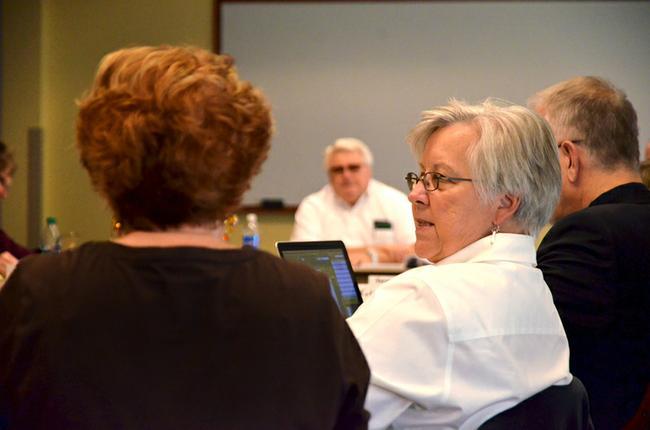Faculty Council continued discussions on the proposed diversity course requirement and heard a report from the Missouri Association of Faculty Senates at its meeting Thursday.
Faculty Council Chairman Harry Tyrer said he sent an email to the university faculty to solicit feedback on the diversity course requirement and received a mixed response.
Tyrer said arguments against the course included that the course as proposed would not be effective, that the issue should be handled at a required orientation session at the beginning of the school year and that the provided definition of diversity was insufficient to endorse the idea.
Diversity Enhancement Committee Chairwoman Candy Galen said the discussion about ways to enhance diversity on campus should not be treated as a closed issue.
“I’d like to come up with a brief questionnaire to send out to faculty, getting some input about how they see diversity being enhanced and treated on a campus-wide basis here,” she said. “Are there other alternatives we might consider instead of a diversity course that might be more palatable and more effective?”
Council member Leona Rubin said the discussion about diversity enhancement on campus began about eight years ago as a result of the Campus Climate Survey and was not a reaction to recent incidents of racism.
Faculty members said they felt the course should foster awareness of diversity but would not be a solution to individuals like those who performed the racist acts.
“My personal opinion is that no course we can teach can take a freshman that comes in with that kind of mindset and change that,” Tyrer said.
Council members also shied away from committing to any solution during this school year.
“Anything we do this year should be under the radar,” council member Nicole Monnier said. “I don’t think anything should go to the faculty, even the idea of it, until we have a radically different approach.”
After the discussion of diversity, Joe Parcell gave the council a report on the Missouri Association of Faculty Senates meeting last week. The meeting brought together representatives from institutions around the state.
Parcell said the main issue discussed was proposed performance-based funding.
“The takeaway message is that every institution sitting around the table is as concerned about performance-based funding as we are, some of them for different reasons,” Parcell said.
He said the meeting also made it clear Gov. Jay Nixon is set on the idea of performance-based funding.
“It was conveyed to us very strongly that we’re under a governor who, when he gets his mind set on something, is not going to deter from that,” Parcell said.
The association decided to invite a senator to its meeting next semester to hear the other side of the performance funding argument.
Parcell also reported that the institutions at the meeting signed a letter supporting domestic partnership benefits within the UM System, a goal Faculty Council has been working toward.
“If Mizzou and the system can take this on and win, there will be a domino effect around the state,” he said.
Rubin also reported on the progress of the eLearning Task Force, which decided that online courses should be handled by their respective departments.
“The committee pretty much totally agrees that a course is a course, regardless of the modality in which it’s taught,” she said.
Council members discussed concerns over how many students would be appropriate in one online course and whether the workload should differ from in-person courses.
The committee also discussed changes in the health insurance plan, which is going up in cost by about 8 percent.








